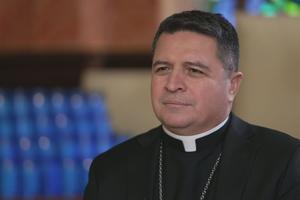An Uncontroversial, Pro-Catholic Move Trump Can Make on Immigration
EDITORIAL: Foreign-born priests and religious working legally in the U.S. are facing an injustice by U.S. bureaucracy.

While the Trump administration and the U.S. bishops are deeply at odds on mass deportations, there’s a separate immigration issue where they can make common cause: overturning the utterly unjustified recent clampdown on visas for foreign-born Catholic priests who work legally in U.S. parishes and Catholic social services.
Given that this clearly is a bureaucratically generated injustice — and one that arose during the Biden administration — the Trump team should be willing to provide immediate administrative relief and push Congress to craft a speedy and permanent remedy.
What’s in play is the immigration status of priests serving as pastors in parishes across America, and in other key capacities, as well as a substantial number of male and female religious. It’s a massive problem: In the Archdiocese of New York alone, according to a Jan. 30 article in The Wall Street Journal titled “The Catholic Church’s Immigration Crisis,” almost a quarter of its priests are at risk of losing their immigration status.
The problem was generated by administrative changes made in early 2023 to the federal regulations governing green cards issued to persons who are applying for permanent U.S. residency via the EB-4 “special immigrant” category. This is the classification that’s available for foreign-born Catholic priests and religious who are already working in the country legally with temporary R-1 religious visas.
The number of new EB-4 green cards is currently capped annually at 10,000, a number that was previously sufficient for most R-1 visa holders to have their permanent-residency applications processed expeditiously during those visas’ five-year term. But federal immigration officials concluded two years ago that a massive backlog of 100,000 applications in another immigration line needed to be shifted to the EB-4 category. As a result, starting in March 2023, R-1 visa holders suddenly found themselves facing a wait of up to 15 years before they could hope to secure a green card.
The situation is compounded by the fact that federal immigration officials require those seeking to obtain another R-1 visa to leave the country for at least a year before they can apply for a replacement. This administrative double whammy means that an increasing number of Catholic parishes are now losing their foreign-born pastors for an indeterminate period — and possibly permanently.
While this is a painful problem for other religious groups that recruit foreign-born ministers, it’s particularly acute for Catholics because of the sacramental nature of our faith. Deprived of their pastors by Washington’s unjust fiat, substantial numbers of the faithful are at risk of losing regular access to the celebration of Mass, confession and the other sacraments that are fundamental instruments of Catholic worship.
The U.S. Conference of Catholic Bishops has objected strenuously and repeatedly against this immigration injustice. Individual bishops around the nation have also voiced their concerns; and in August, the Diocese of Paterson, New Jersey, filed a lawsuit asserting that the 2023 federal action violated the Religious Freedom Restoration Act as well as the Administrative Procedure Act.
Pressed by the USCCB about the situation, federal officials have freely conceded that the situation is unjust but insist that only Congress can remedy it. That’s a half-truth at best.
While it’s true only legislators can increase the annual allocation of EB-4 green cards, or create a new classification dedicated specifically to religious applicants, the executive branch can immediately diminish the problem tremendously by the simple expedient of reducing the one-year waiting period for R-1 visa reapplicants to 30 days, or less.
The good news is that a solution appears to be in the works. Republican Sen. Susan Collins of Maine and Democratic Sen. Tim Kaine of Virginia, who are both Catholics, advised the USCCB last summer that they were actively pursuing a legislative fix, and they may introduce a bill in the Senate very soon.
For its part, the Trump administration can assist by expressing strong support for the Collins-Kaine measure when it’s introduced, as well as by moving immediately to cut the waiting period for R-1 visa renewals and remove the current requirement that applicants leave the country until a decision is made.
This would result in a very welcome win-win outcome, both for the U.S. government and for the Church, on one significant immigration issue.
- Keywords:
- catholic teaching on immigration
- visa
- catholic priesthood
- green cards
- president donald trump
















